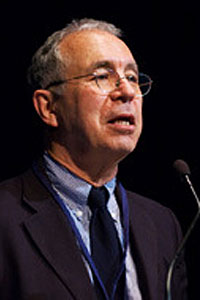
In medicine, a doctor's most fundamental approach to patient care is to first do no harm. For governments around the world, tobacco control is a central public health goal. Unfortunately, in pursuit of an objective, with which no one can argue, governments sometimes ignore the doctor's creed to do no harm, and embrace well-intentioned efforts that yield the opposite of their desired effect.
Earlier this year, I submitted testimony to the Australian Parliament's Joint Committee on Law Enforcement detailing the global scourge of illicitly traded tobacco. Unlike the global narcotics trade, illicitly traded tobacco is virtually unknown to most. Few appreciate that this trade can be as profitable, and in many cases more profitable, to organised criminal syndicates as the distribution and sale of cocaine and heroin.
In Europe, the annual loss of government revenue linked to the illicit tobacco trade is estimated by Transcrime's report titled the European Outlook on ITTP (2015) to exceed €10 billion (398 billion baht) a year, with smugglers reaping upward of €10.5 million in profit. Yet, despite the scale of this problem it remains a lower priority for governments, with far less resources devoted to combating it compared with efforts made to curtail illicit drugs.
The loss of billions in revenue and the unknowing encouragement given to criminals to illicitly trade in tobacco by not prioritising it is worrisome enough. Also troubling is the damage done to the health of those consuming illegal tobacco. Most illicit products are not manufactured in adherence to the strict manufacturing rules governments required for legal tobacco products, nor are they subject to stringent marketing rules, making illicit tobacco products easily available to children.
Without question, governments would never introduce policies that would make it easier for those involved in illegal drugs to ply their trade, yet that is exactly what we are seeing with respect to illicit tobacco.
Last year, the World Health Organisation (WHO) marked its annual World No Tobacco Day with a focus on the illicit tobacco trade. Today, the WHO will again mark World No Tobacco Day, with focus on the "plain packaging" of tobacco products. It's fitting that these two topics have been the most recent themes for the WHO, as one is providing a helping hand to the other.
In Australia, the implementation of tobacco product plain packaging, which mandates that all tobacco be sold in standardised packs devoid of any branding, is an illustrative example of a regulation that could achieve the opposite of its intended effect. Although further hard data is required, the growth in illicit tobacco sales since the introduction of Australia's restrictive plain packaging measure risks being an example of regulation which causes the growth of crime, lowers health outcomes while also having a direct cost to government revenue.
In attempting to reduce the harm caused by tobacco use, Australia has inadvertently opened a door to reduced health outcomes.
As I stated in my testimony to the Joint Committee, if illicit tobacco trade is to be reduced, it is necessary to understand the trade-off between the regulation of the legal tobacco market and the impact that regulation has on the illicit market. Put simply: do extreme restrictions on legal tobacco companies produce increased liberties for illegal tobacco sellers?
Public health and public safety cannot be treated as separate and unrelated issues. This is a division of labour that will not succeed. Health regulators cannot ignore law enforcement issues. Instead, governments must adopt an approach that maximises positive health outcomes and minimises criminal opportunities. Plain packaging does not achieve that balance.
To date Australia is the only country in the world that has implemented tobacco plain packaging. Soon Ireland, France and the United Kingdom will follow, having already approved laws to do so, with other countries, such as Canada, committed to moving in the same direction.
As these governments proceed, for others waiting and watching, it is imperative they embrace a balanced, cooperative regulatory approach. Governments must be fully cognisant that their best intentions to regulate tobacco can lead directly to unintended consequences. Problems can vary from country to country but it is clear to everyone that if a legal market is squeezed by prohibitive regulation the correspondent illegal market grows in crime and insecurity. Last but not least with increased law enforcement costs.
Prof Ernesto U Savona is Director of TRANSCRIME, Joint Research Centre on Transnational Crime at the Università Cattolica del Sacro Cuore. He is a leading international expert on transnational organised crime and money laundering.
